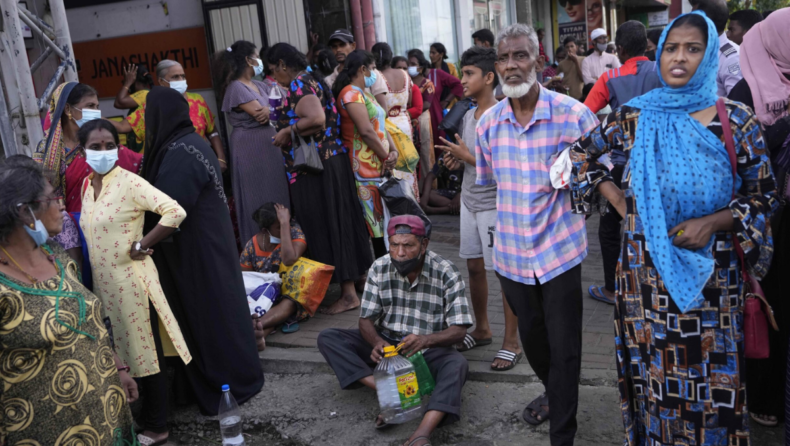
Sri Lanka’s Prime Minister says the country’s debt-ridden economy has “collapsed” following months of food, gasoline, and energy shortages. The South Asian island nation can’t even buy imported oil.
“We are currently dealing with a much more dire scenario than just a lack of food, gasoline, gas, and power. Our country’s economy is in shambles. According to Prime Minister Ranil Wickremesinghe, it is the most important matter on our agenda right now.
As the country’s finance minister, Mr. Wickremesinghe is also entrusted with stabilizing the economy. It is collapsing under the weight of massive debts, decreased tourism earnings, other pandemic-related effects, and rising commodity prices.
He informed MPs that the Ceylon Petroleum Corporation is currently $700 million in debt. Because of this, no nation or organization in the world is willing to give us gasoline. Even providing fuel in exchange for money is a turnoff, he claimed.
As Sri Lanka’s foreign reserves decreased, Mr. Wickremesinghe said that the government had not intervened quickly enough to change the course of events.
“We wouldn’t be in this terrible situation right now if at least some measures had been taken to slow down the economy’s downfall in the beginning. However, we missed this chance. We are already observing indicators of a potential plunge to the bottom, “he remarked.
With the help of $4 billion in credit lines from its neighbor India, Sri Lanka has been scraping by. However, Mr. Wickremesinghe claimed that India wouldn’t be able to support Sri Lanka for very long.
In anticipation of the conclusion of talks with the International Monetary Fund over a rescue package, Sri Lanka has already declared that it will postpone repayment of $7 billion in foreign debt that is due this year. It must pay an average of $5 billion a year until 2026.
What caused Sri Lanka to not pay its debt?
Due to Sri Lanka’s government’s failure to pay $78 million (£63 million) in debt interest payments, two of the top credit rating agencies in the world declared that Sri Lanka had defaulted.
A default may drastically erode the trust of investors in a nation. As a result, making it more difficult to borrow money in global markets and endangering the value of its currency.
Sri Lanka claims it cannot pay its international creditors. It owes $50 billion (£40 billion). It is approaching the International Monetary Fund for a loan (IMF).
What impact does this have on people?
Sri Lanka has been without enough foreign currency to purchase all it requires from overseas for months. Prices have increased due to shortages of food and gasoline. At this time, the inflation rate is at 30%.
Power outages have occurred. A shortage of medications has put the health system in danger of failing.
People have been forced to wait in lengthy lines to purchase necessities like fuel, cooking supplies, and medicine due to the severe shortages caused by the foreign exchange crisis.
In conclusion, the country’s greatest economic crisis since gaining independence in 1948. The country has been made worse by Sri Lanka’s failure to make a payment on a multi-million-pound foreign loan.
Ranil Wickremesinghe, the new prime minister, is pleading for assistance from outside to save the government. It is on the verge of running out of foreign currency reserves.
Rising food costs and severe fuel shortages has sparked weeks of protests in Sri Lanka.













